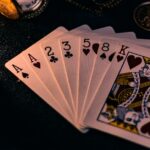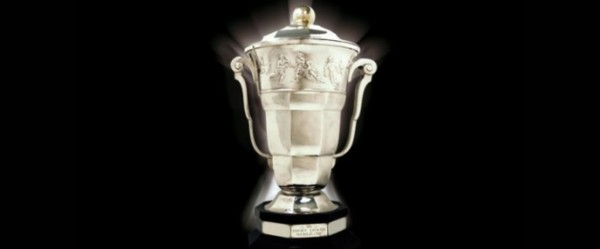The Rugby League World Cup is the second oldest World Cup competition in world sport. Only the soccer World Cup is older, with the Rugby League World Cup being decades older than other similar sporting competitions.
 Coming into the 2008 World Cup many believe that it was do or die for the concept of a large scale international Rugby League tournament, and signs didn’t look good heading into the World Cups opening games.
Coming into the 2008 World Cup many believe that it was do or die for the concept of a large scale international Rugby League tournament, and signs didn’t look good heading into the World Cups opening games.
While New Zealand had won the 2005 Tri Nations, they had been badly beaten in nearly every contest since then, while Australia looked unbeatable with a star studded lineup of players.
The tournament organizers copped a lot of criticism heading in, but it was soon clear they had made a number of very good decisions. Their choice of stadium for games was good, the changed format made for close games and the World Cup ended up making a $5 million dollar profit, which was well beyond most people expectations.
The games themselves were also of high quality, with PNG almost upsetting England in the first game, Samoa and Tonga playing a top class match and every single team in the tournament ending their run with at least one win under their belts.
Throughout thought Australia looked like clear cut, unbeatable favorites, having beaten New Zealand heavily in their first game and then humiliating an English side who standards has alarmingly slipped since the tournament 8 years ago. They along with France and their poor performances were the only real worrying signs during the whole tournament.
While it started strong, the World Cup looked like it was going to finish with a wet sail, but then something very different happened.
In a classic final that was filled with moments that will be remembered for a lifetime, New Zealand beat Australia with a big win to claim their first World Cup. It was a massive shot in the arm for the games international credibility and a massive boost for the game in New Zealand.Courtesy of http://www.leaguefreak.com/
 With the Super League War finally over, years of neglect of the international game were seemingly had taken their toll.
With the Super League War finally over, years of neglect of the international game were seemingly had taken their toll.
Controversy rocked the 2000 tournament before kick off. The including of a record 16 teamss coupled with relaxed international eligibility rules saw most sides flooded with Australian players.
The RFL announced the use of a revolutionary “new ball” which, much to the dismay of the rest of the Rugby League World, was closer to a soccer ball than a Rugby League ball. Thankfully Australia, prompted by the other competing nations, stepped in and forced changes although a very rounded ball was still used in the competition (Some suggest the RLF wanted to try and cut back Australia’s handling advantage, a move that didn’t work).
As the competition kicked off, poor weather, transport strikes in the UK and a savaging by the press saw the competition turn into a PR disaster. Lop sided score lines were the order of the day as Australia and New Zealand coasted through the group stages will little to no effort. Fans didn’t like what they saw and turned away in droves and most games were played in front of extremely poor crowds.
The one positive note was the brilliant form of Australia, showing off their dazzling skills to the best of their ability. In front of 44,000 at Old Trafford, Australia crushed New Zealand in the final winning by a scoreline of 42-12.
After the competition, international League was at an all time low. This was not helped by the fact that the competition organizers, who had announced a profit “Before a ball was even kicked’ left the RFL with millions of pounds worth of debt. A debt that almost saw the game in the UK go belly up.Courtesy of http://www.leaguefreak.com/
 The 1995 World Cup was played as a celebration of the game’s 100th birthday and, although the party was marred by the Super League war which erupted just months previously, it proved a splendid and successful venture. The competition reverted more closely to its original time-span and was completed in three memorable weeks. However, its scope broadened considerably with four new nations competing – Fiji, South Africa, Tonga and Western Samoa.
The 1995 World Cup was played as a celebration of the game’s 100th birthday and, although the party was marred by the Super League war which erupted just months previously, it proved a splendid and successful venture. The competition reverted more closely to its original time-span and was completed in three memorable weeks. However, its scope broadened considerably with four new nations competing – Fiji, South Africa, Tonga and Western Samoa.
One thing did not change. Australia won for the fifth time in a row despite the fact that the Australian Rugby League stuck to its principles and refused to select players who had signed for Super League. Consequently, they were shorn of a host of great players.
After winning their last eleven World Cup-ties Australia lost to a pumped-up England before over 41,000 at Wembley in the opening game – exactly what the tournament needed. The rest of the Group 1 games were routs with Australia setting a new record score in beating South Africa 86-6 at Gateshead, Andrew Johns bagging 30 points and a record 11 goals.
Groups 1 and 2 produced much more intense competition. The Tongan games with New Zealand, won by a Matthew Ridge drop goal at the death, and with Papua were absolute spell-binders. In Group 3 Wales did well to edge out the Samoans.
The semi-finalists were virtually as anticipated. England controlled their encounter with Wales at Old Trafford from the outset. Although Jonathan Davies, in his last rugby league match, and his team offered stern resistance,the English were too strong in every aspect of play. The second semi at Huddersfield was a much more interesting and dramatic affair. Australia appeared to have the game wrapped up at 20-6 only for the Kiwis to equalise two minutes from time. Ridge missed the conversion and then shaved the post with a drop goal attempt. Twenty minutes extra time allowed the Aussies to reassert themselves and run out 20-10 winners.
Over 66,000 poured into Wembley for the final, mostly praying for Denis Betts’ England to finally break Australia’s stranglehold on the trophy. Until the 67th minute their hopes survived as England trailed only 8-10 but at that point they were dashed by full-back Tim Brasher’s try and the outstanding Kangaroo skipper Brad Fittler was able to claim the World Cup for Australia yet again.Courtesy of http://www.playtheball.com/
 The tenth World Cup competition went strictly according to expectations. Australia lifted the trophy for the fourth consecutive time and the seventh in all. Moreover, they won every one of their eight games in the qualifiers, mostly without much effort. Their opponents could count themselves fortunate that the Australian kickers could only land 24 goals to add to the 47 tries scored by the green and golds in the tournament.
The tenth World Cup competition went strictly according to expectations. Australia lifted the trophy for the fourth consecutive time and the seventh in all. Moreover, they won every one of their eight games in the qualifiers, mostly without much effort. Their opponents could count themselves fortunate that the Australian kickers could only land 24 goals to add to the 47 tries scored by the green and golds in the tournament.
Essentially the competition was devoid of shock results. Australia could not lose, the Papuans could not win, France could only beat the Papuans and the Kiwis and the Lions would inevitably fight it out for the runners-up spot. At least the games between Britain and New Zealand were close, hard-fought affairs. At Wigan all the scoring was done in the first half, Martin Offiah’s and Alan Tait’s tries winning the game for the home team. The return at Christchurch eight months later saw Britain outscore the New Zealanders by three tries to two but Matthew Ridge’s six goals swung the match to the Kiwis 21-18.
Britain did give the Australians two harder games than the Kiwis and so perhaps deserved to pip New Zealand for a place in the final on points difference.
The twenty games produced only four hat-tricks of tries – by Dave Watson (New Zealand v France in Carcassonne), Brad Mackay (Australia v France at Parkes), Willie Carne (Australia v Papua at Port Moresby) and Richie Blackmore (New Zealand v Papua at Auckland). The best goal-kicking haul was Jonathan Davies’ eight for Britain against Papua at Wigan.
A measure of Australia’s supremacy was their decision to play games at new venues against France at Parkes and against Papua at Townsville, games which would have failed to ignite any interest in Brisbane or Sydney. They were so confident that they agreed to play the final at Wembley, realising that they were a much bigger attraction in Britain than Great Britain were in Australia.
The World Cup Final did indeed prove a wonderful occasion. A world record crowd for an international of 73,631 paid world record receipts of £1,848,056. For a long time it appeared that Britain would pull off the seemingly impossible. At half-time they led 6-4, scrum-half Deryck Fox having landed three penalty goals to Mal Meninga’s two. The Australians pulled the game out of the fire 12 minutes from time, however, when Steve Renouf finally scored the game’s only try, which Meninga converted. Courtesy of http://www.playtheball.com/
 The newly created three-year long World Cup certainly had its drawbacks. Players who started in the competition had sometimes retired before its completion. The system of using individual test matches as dual purpose World Cup fixtures was confusing to the public and there was no apparent cohesion to the tournament until the final stages. France, very much in crisis, failed to tour the antipodes in the summer of 1987 and forfeited games against Papua, Australia and New Zealand. Nonetheless, the competition did have its highlights.
The newly created three-year long World Cup certainly had its drawbacks. Players who started in the competition had sometimes retired before its completion. The system of using individual test matches as dual purpose World Cup fixtures was confusing to the public and there was no apparent cohesion to the tournament until the final stages. France, very much in crisis, failed to tour the antipodes in the summer of 1987 and forfeited games against Papua, Australia and New Zealand. Nonetheless, the competition did have its highlights.
It began sensationally when New Zealand, orchestrated by the gifted half-backs Olsen Filipaina and Clayton Friend, at last became real contenders for the title, totally outplaying Australia at Carlaw Park. Another Richter scale shock was registered when Papua won their first ever World Cup fixture with a 24-22 defeat of the Kiwis, a result which finally deprived New Zealand of leadership of the tournament. The Papuans had shot their bolt, however, and were successively hammered by record scores by Australia (62-12), a vengeful New Zealand (66-14) and Australia again (70-8). The latter game, the last of the preliminary matches, was the first international to be staged at Wagga. The Australians celebrated by enabling Michael O’Connor to pile up a World Cup record of 30 points.
As the tournament drew to its close, Great Britain threw it into confusion with a marvellous and totally unexpected victory over Australia at the Sydney Football Stadium, their first over them for a decade. It suddenly set up a crunch encounter between New Zealand and Great Britain to decide who would meet Australia in the final. The Kiwis needed to win. A draw would have been sufficient for the Lions.
Christchurch had never really staged such an important fixture and it was touch and go to the final hooter as to which team would prevail. There were never more than four points between the teams. Two tries from Gary Freeman proved crucial, however, as New Zealand scraped home 12-10.
The World Cup Final was too big an event for any New Zealand Rugby League ground to stage, so Rugby Union’s Eden Park in Auckland was used. Australia had agreed to play the final in either England or New Zealand. A New Zealand Rugby League record crowd of 47,363 attended but went home disappointed as Wally Lewis led his razor-sharp Kangaroos to a 25-12 victory, which was in fact much easier than the score-line suggested. The game was effectively over by half-time when New Zealand trailed 0-21. New Zealand have never come as close to winning the World Cup before or since. Courtesy of http://www.playtheball.com/
Not for the first time the main issue became a struggle between Australia and Britain, the latter huge underdogs having suffered mass withdrawals. France, who had beaten both England and Wales, fancied their chances and as hosts New Zealand had prepared better than ever before and were confident of doing well. Both performed disastrously.
Britain and Australia both had comfortable opening victories over the Kiwis and Chanticleers at Carlaw Park, with kickers Mick Cronin (6 goals) and George Fairbairn (7 goals) having field days. In Sydney France gave a better performance against Australia but were still easily outclassed. The Australian full-back Graham Eadie, probably the revelation of the tournament, scored two super tries. Meanwhile Britain overpowered New Zealand in Christchurch to set up yet another Anglo-Aussie World Cup Final.
The two had first to meet in Brisbane, however, where the biggest crowd of the competition – 27,000 – saw Australia come from 4-5 behind at half-time to win 19-5. Eadie was again the game-breaker with two unstoppable tries while Cronin added five goals. The last preliminary game in Auckland ended in a 28-20 win for New Zealand against France. Chris Jordan, the Kiwi stand-off, set a New Zealand World Cup record with eight goals and 19 points.
The final at the SCG was a close-run affair. Britain, missing several key men and with a debutant hooker in Keith Elwell, dominated possession but could not get the better of their opponents who ran out 13-12 victors. The decisive try was scored by the diminutive scrum-half John Kolc who never played for Australia again, having been a last-minute replacement for the injured Tommy Raudonikis. George Fairbairn had the mortification of seeing a potential match-winning penalty go wide ten minutes from time. Arthur Beetson became the first captain to lift the World Cup twice, having already done so in 1975. Courtesy of http://www.playtheball.com/
 The 1975 World Cup departed radically from its traditional format. Officially it was styled World Championship and operated on a home and away basis. Rather than a short three week self-contained tournament, it stretched over over eight months and thereby lost some of its impact. Additionally Great Britain was split into England and Wales for the first time, a decision which proved crucial to the destination of the trophy. For the first time the competition was staged under the six-tackle rule and all the games were played under neutral referees.
The 1975 World Cup departed radically from its traditional format. Officially it was styled World Championship and operated on a home and away basis. Rather than a short three week self-contained tournament, it stretched over over eight months and thereby lost some of its impact. Additionally Great Britain was split into England and Wales for the first time, a decision which proved crucial to the destination of the trophy. For the first time the competition was staged under the six-tackle rule and all the games were played under neutral referees.
In competitive terms the tournament stood up well. As expected England and Australia were the main contenders but Wales and New Zealand also had their triumphs. Only the French completely disappointed although they were in fact the first team to win a match when they beat Wales in Toulouse.
It was the games in the southern hemisphere in June which proved pivotal. Wales’ high point was their 12-7 win over England at Lang Park, Brisbane, a spiteful game which proved utimately fatal to the English and was their solitary defeat. Almost as crucial were England’s next games which ended in hard earned draws in Auckland and Sydney.
England maintained the presure on Australia when they defeated New Zealand 27-12 at Odsal on 25 October, when stand-off Ken Gill ran in three tries. The following day in Perpignan Australia needed victory to lift the trophy, otherwise an English win over the Kangaroos at Wigan on 1 November would allow them to steal the title. That prospect became academic as Arthur Beetson’s green and golds rolled over the French 41-2, with full-back Graham Eadie contributing 17 points. Even so there was much rejoicing in the English camp when the Wigan game ended in a famous 16-13 triumph, despite a hat-trick from the Kangaroo wing prodigy Ian Schubert, who had also scored three tries against Wales at Swansea.
The competition had thrown up several other notable scoring feats. Australian centre Mick Cronin had kicked nine goals against the Welsh in Sydney while England winger Keith Fielding had created a new record by scoring four tries against a hapless French team at Bordeaux.
There was controversy too for in several games there had been undue violence with the Welsh particularly prominent in this respect. The worst incident resulted in Jim Mills, the Wales prop, being banned for the rest of the season after an altercation in the 25-24 win over New Zealand at Swansea, a ban which was eventually lifted on 2 January, 1976.Courtesy of http://www.playtheball.com/
 Australia entered the 1972 competition as odds-on favourites, although New Zealand had beaten all three of the other nations in 1971 and France were expected to be tough opponents on their home soil. In the event Great Britain confounded most expectations by running out worthy winners and levelling their tally of World Cup wins at 3-3 with the Australians.
Australia entered the 1972 competition as odds-on favourites, although New Zealand had beaten all three of the other nations in 1971 and France were expected to be tough opponents on their home soil. In the event Great Britain confounded most expectations by running out worthy winners and levelling their tally of World Cup wins at 3-3 with the Australians.
This was the last World Cup to be played under the four-tackle rule. The rugby played was sometimes of exceptional quality while the refereeing was at times eccentric and innovative!
France kicked off the tournament by sharing six tries with the Kiwis but a massive penalty count in their favour allowed the French to dictate play, their five goals and a drop goal to none by the Kiwis proving decisive. At Perpignan a monumental struggle finally went Britain’s way 27-21 against the Kangaroos, for whom Bobby Fulton grabbed three tries in a lost cause. Britain then overcame France 13-4 to qualify for the final with outstanding second-rower Phil Lowe scoring two tries. On the same day New Zealand gave Australia a hard time, the first half being scoreless, before going down 5-9.
Britain hammered New Zealand 53-19, a World Cup record score, with young stand-off John Holmes collecting 26 points (10 goals, 2 tries) – another World Cup record. Australia had to beat France at Toulouse to reach the final in the last game of the preliminaries, a task which proved well within their capabilities.
The final at the Stade Gerland proved a mesmerising game. The score was 10-10 at full-time and for the first time in World Cup history extra time (20 minutes) was played. No further score was added and Britain took the trophy on a superior record in the preliminary rounds. The game will always be remembered for British captain Clive Sullivan’s wonderful long distance try although had Aussie winger Ray Branighan succeeded with a 79th minute penalty or Bob Fulton landed one of three drop goal attempts in the last five minutes, the cup could so easily have gone to Australia. Courtesy of http://www.playtheball.com/
 In 1970 Great Britain should have won the World Cup, France could have reached the final and Australia might have been knocked out in the preliminary stages. That none of that happened is an indication of the competitiveness of the tournament but also of the importance that luck sometimes exerts in sport.
In 1970 Great Britain should have won the World Cup, France could have reached the final and Australia might have been knocked out in the preliminary stages. That none of that happened is an indication of the competitiveness of the tournament but also of the importance that luck sometimes exerts in sport.
Britain, fresh from a magnificent Lions tour during which the Ashes had been regained, won all three of their fixtures. Everyone else lost two, yet Britain came away from the tournament empty-handed. Australia beat the Kiwis easily at Wigan in the opening fixture with Eric Simms repeating his form of the 1968 tourney by landing a record ten goals. Three days later Britain came from 0-4 behind to defeat Australia 11-4 at Headingley with Syd Hynes scoring the game’s only try.
The try of the tournament, however, was scored by the sensational French winger Serge Marsolan against New Zealand in a mud-bath at Hull. Marsolan ran from behind his own line for a try fit to win any match but the lackadaisical French lost 15-16 and then put up a great fight against Britain, again in vile conditions, only to lose 0-6 at Castleford to three penalties from Ray Dutton. By the final round Britain had qualified for the final and all the other teams still had a chance to qualify. Britain put paid to the Kiwis at Swinton but an incredibly exciting game at Odsal between France and Australia was the tournament’s piece de resistance.
Aussie centre Bobby Fulton, the official player of the tournament, scored a try within seconds of the kick-off – probably the quickest ever in international matches. However, with ten minutes to go and the scores level at 15-15, the French stole the game when stand-off Jean Capdouze dropped a monster goal. In the final analysis Australia qualified for the final on the back of their pointsfest in the opening game against New Zealand.
The final at Headingley went completely against expectations. Britain failed to play any decent football despite overwhelming possession. Australia utilised their meagre chances to the full and ran out 12-7 victors. The game itself was an extended punch-up. The only surprise was that it took 79 minutes before anyone was sent off, at which point Billy Smith (Australia) and Syd Hynes (GB) became sacrificial lambs for what had been going unpunished throughout the game. Courtesy of http://www.playtheball.com/
 The co-hosts of the 1968 World Cup had wildly different fortunes. For Australia there was the glory of an unbeaten record and the reclamation of the World title after a gap of eleven years. For New Zealand, who had in the period 1960-65 won the Courtney Goodwill Trophy for most successful test-playing nation, there was merely the ignominy of three defeats.
The co-hosts of the 1968 World Cup had wildly different fortunes. For Australia there was the glory of an unbeaten record and the reclamation of the World title after a gap of eleven years. For New Zealand, who had in the period 1960-65 won the Courtney Goodwill Trophy for most successful test-playing nation, there was merely the ignominy of three defeats.
New Zealand’s hopes of success ended after only twelve minutes of their opening fixture against France at Carlaw Park when second-rower Brian Lee was sent off in a 10-15 loss in which the classy French stand-off Jean Capdouze bagged 13 points. The game was also notable for the first World Cup substitution when Adolphe Alesina replaced second-rower Francis De Nadai. Meanwhile a record World Cup crowd of 62,256 was watching New Zealand referee John Percival mercilessly penalising Great Britain in Sydney, where Australia finished 25-10 winners with debutant full-back Eric Simms booting a record eight goals.
Simms repeated the feat as Australia eventually killed off New Zealand at Brisbane after trailing for much of the game. France surprised Britain in a rain-ruined match at Auckland with an uncharacteristically stubborn defensive display to qualify for a World Cup Final showdown against Australia. The omens were bad for France, however, for they lost 4-37 to the Aussies in the final preliminary game in Brisbane, where scrum-half Billy Smith dropped three goals. French winger Jean Ledru, scorer of France’s winning try against Britain, and Australia’s prop Artie Beetson were both sent off.
In the final at the Sydney Cricket Ground France offered sterner resistance and held the Australians to 0-7 at half-time and with quarter of an hour were only 0-12 down before losing 2-20 before a crowd of 54,290. The stars of a superb Australian team in the tournament were skipper Johnny Raper, second-rower Ron Coote, who scored spectacular tries in each and every game, and the dead-shot kicker Simms, who harvested a record 25 goals (50 points).
The 1968 World Cup was the first to be played under limited tackles rules, the four-tackle rule applying. Financially it was a profitable venture for the competing nations. Courtesy of http://www.playtheball.com/
The tournament was, however, much more competitive than in 1957. France went desperately close to beating Australia at Wigan, missing a penalty and four drop goal attempts in the closing minutes. New Zealand also gave the Aussies a hard time in easily the most entertaining game of the series at Headingley. Brian Carlson, the Australian winger, bagged a hat-trick of both tries and goals but the highlight of the game was a bewildering try by Kiwi stand-off George Menzies which was so spectacular that even the referee, Eric Clay, applauded.
Britain’s comprehensive victory over the French at Swinton was marred by the first double sending-off in World Cup annals, France’s skipper Jean Barthe and Britain’s second-rower Vince Karalius being despatched by Edouard Martung, a police inspector from Bordeaux. In the final round against New Zealand France’s second-rower Robert Eramouspe was dismissed for reckless kicking in a game which more resembled a brawl.
Meanwhile in the eventual decider – a vicious affair in rain and mud at Odsal – the main mystery was how Monsieur Martung contrived to not send anyone off. Great Britain did play the better football between hostilities. First half tries from wingers Billy Boston – out injured in the first two games – and Mick Sullivan and two goals from stand-in full-back Austin Rhodes effectively had the match won at 10-0. Brian Carlson scored the only Australian try ten minutes from time – much too late to prevent British captain Eric Ashton from collecting the World Cup. Courtesy of http://www.playtheball.com/
In the event Australia simply ran away with the competition. At Brisbane they easily accounted for New Zealand but lost full-back Keith Barnes and scrum-half Keith Holman with injuries for the remainder of the tournament. Meanwhile Britain had flattered to deceive with a 23-5 win over France in Sydney. The crunch game followed only two days later. A crowd of 57,955 were on the SCG to witness a rampant display by the Australians who, after a close first half, smashed the Lions 31-6. Holman’s replacement Ken McCaffery and make-shift full-back Brian Carlson and a dominant Australian pack were the main instruments in the carve-up of the British defence.
A comfortable 26-9 victory over the French saw Aussie skipper Dick Poole lead his men off the SCG as World Cup winners even before the final game was played on the same ground three days later. That fixture gave New Zealand their first ever World Cup victory. A shell-shocked Britain matched the Kiwis try for try but Bill Sorensen’s seven goals to Lewis Jones’s three made the difference in a 29-21 score-line.
In this tournament best and fairest awards were made to individual nations, the recipients being Gilbert Benausse (France), Brian Carlson (Australia), Phil Jackson (Britain) and Bill Sorensen (New Zealand).
History was made when the returning French and British squads visited South Africa and played a series of exhibition matches in Benoni, Durban and East London, all of which were won by the British. Courtesy of http://www.playtheball.com/
 The first rugby league World Cup was an unqualified success. It was played in uniformly good spirit, provided an excellent standard of play and was a fitting celebration of France’s 20th anniversary as a league-playing nation. The uncertainty of the ultimate outcome was of particular interest. In the early 1950s all four competing nations were quite capable of beating each other – no test series in the period was a foregone conclusion.
The first rugby league World Cup was an unqualified success. It was played in uniformly good spirit, provided an excellent standard of play and was a fitting celebration of France’s 20th anniversary as a league-playing nation. The uncertainty of the ultimate outcome was of particular interest. In the early 1950s all four competing nations were quite capable of beating each other – no test series in the period was a foregone conclusion.
If there was a favourite it was Australia who had just won back the Ashes. However, in 1953 they had lost series to both the French and the Kiwis, while Great Britain had defeated New Zealand on the second half of their 1954 Australasian tour.
The form book merely provided a conundrum which was made more confusing when the British were forced, through injuries and players making themselves unavailable, to select a raw and largely untried squad which was given little credibility by the cynics.
The captains for this historic event were Puig-Aubert (France), Cyril Eastlake (New Zealand), Clive Churchill (Australia) and Dave Valentine (Britain). The referees were Warrington’s Charlie Appleton and Rene Guidicelli (Perpignan).
France got off to the best possible start winning a competitive encounter with the Kiwis at Paris’s Parc des Princes. The New Zealand winger Jim Edwards had the distinction of being the first scorer in World Cup history with a try after only five minutes. Puig-Aubert landed the first goal. The following day Britain demolished Australia at Nantes, the Aussies being flattered by a score-line of 13-28.
The crucial game of the tournament ended in a 13-13 draw between France and Great Britain. The game gripped the attention of the rugby league public as never before with a record crowd of 37,471 attending at Toulouse. That record crowd has still not been beaten in France. Britain and France finished level after both winning their final games and a final was thus necessary. Another 30,000 crowd assembled in Paris to see Britain create history against a gallant French team. The BBC broadcast the whole match via the Television Continental Exchange – a rare novelty for the time. Courtesy of http://www.playtheball.com/







